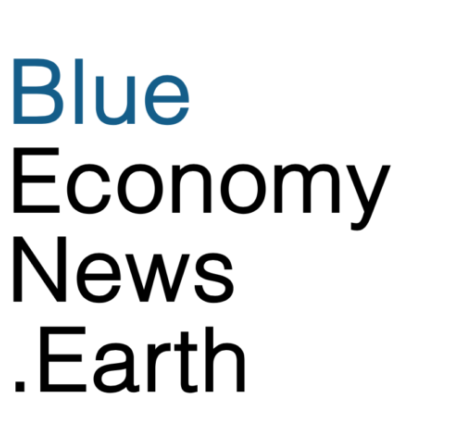Hope Zones Foundation this weekend launched a regenerative seaweed farm in Nazaré, Portugal, a collective Blue Economy effort involving seaweed farmers, fishing operations, and surfers of some of the world’s biggest waves.
Hope Zones Foundation is a non-profit focused on generating hope in a world that feels overwhelmed by the challenges of climate change. Founded by a small group including surfer João Macedo, the organization aims to take positive action toward the UN goal of protecting 30% of the ocean by 2030. Surfers, fishers, chefs, conservationists, scientists, and blue finance experts came together, with the support of Patagonia clothing company, to create a kelp farm to be an example of blue economy collaboration for the world.
The event was emceed by Macedo, co-founder and former manager of the World Surfing Reserves movement, who circulated through the group encouraging people to eat lots of bacalhau, and brownies made from seaweed. Macedo was a key to uniting the community, including the fishing companies that are often in conflict with surfers and aquaculture organizations because of competing interests.
“In my view, in my experience, (the kelp farm) is going to help,” said Joaquim Zarro, skipper of fishing vessel Deus e a Pesca. “When the plants are growing, they’re going to create food and that is going to make the fish come here.”
Zarro was among the panelists speaking at an day-long event Friday that began the weekend launch of the seaweed farm. It included panels on sustainable coastal tourism, blue finance, ocean conservation and the use of seaweed. While seaweed has been used for everything from biodegradable plastics to human health products, Hope Zones aims to use its seaweed to make a biostimulant to deal with the global problem of soils that have been depleted through unsustainable farming methods.
In fact, the greatest danger faced by the world today, according to Hermann Schips, CEO and Founder of Kelpinor who spoke at the panel, is that the soil we count on to produce our food for the future is almost dead.
“But poor soil is nothing new for us up in the Arctic,” Schips said, “and the way that we have treated this for hundreds of years is that we have been using seaweed to revive the soil. And what we are doing at Kelpinor is more or less modernizing tradition.”
The biofertilizer his company produces from seaweed, Schips said, increases yields by 35%. In six months, it can grow from a seed smaller than a millimeter to a harvestable seaweed, a meter and half long. And a single liter can feed 65,000 salad plants.
“If we start turning the seaweed from our oceans into bio-stimulants that help reduce the amount of chemical fertilizers, we can solve and revive and regenerate the soils,” he said.
Carina Félix, biotechnology researcher in the biotechnology working at Cetemares, Polytechnic of Leiria spoke on her research with bioactive compounds of invasive seaweeds and their possible applications iagainst phytopathogenic fungi and bacteria. Felix said they’d researched the impact of red seaweed on Rocha pears–a significant Portuguese crop. The pears had suffered from Fire Blight and because of prohibitions against antibiotics, they didn’t have a solution to help restore the plants. The 60% of pears that are exported have a commercial value of €85 million. But numbers more than halved between 2021 and 2025.
The biostimulant made from red algae wound up increasing the harvest of plants that had suffered blight by 50% and even increased the yield of those that weren’t diseased by 15%, she said.
Hope zones also hopes to sell blue carbon credits as seaweed farms have been demonstrated to be effective at blue carbon sequestration.
The day concluded with a speech by Salvadore Malheiro, Secretary of State for Fisheries and the Sea.
In addition to the regenerative seaweed farm, Hope Zones in partnership with Bioshpera Sustainable Certification, will focus on sustainable tourism working to certify businesses such as fishing, beach concessions, restaurants and hotels and supermarkets and distributors to fund marine protected areas and ocean literacy campaigns.

